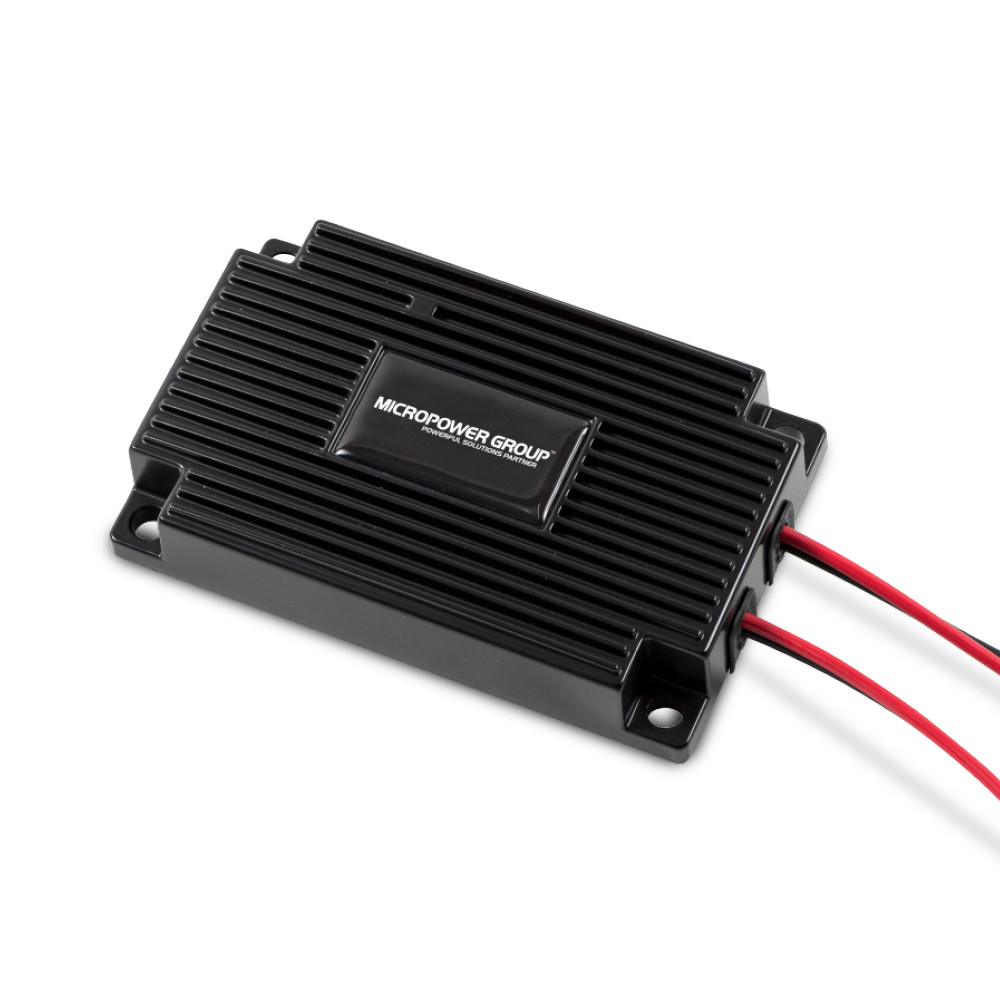
1. 10°C increase in temperature results in 50% shorter lifetime
An often-quoted rule of thumb in electronics reliability for capacitors is that every 10°C (18°F) increase the lifetime approximately halves. For semiconductors, it is a similar change, but lifetime is further reduced at higher temperatures. This also applies to DC-DC components.
2. 4% gap in efficiency leads to 2 times higher temperature increase
A DC-DC converter should be tested in the end-use application to ensure suitable thermal performance. This is of major importance since the energy losses from a low-efficiency DC-DC converter transfer to heat and will have a direct impact on the operational temperature, resulting in power output de-rating as a function of increased temperature. Hence, low efficiency means that an oversized converter is often needed.
A DC-DC converter directly impacts the system efficiency as a whole. A high-efficiency converter will enable system savings, which are necessary to include in the overall cost estimate. For example, a 5% efficiency improvement for a 500W converter can contribute to overall system saving of 20-25% of the DC-DC converter cost.
Micropower offers an extensive range of high-efficient DC-DC converters, optimized for industrial machines and vehicles. The product portfolio spans from 65W up to 700W, handling voltages from 12V to 120V. All converters feature top-class efficiency (>96%) and are cool running. The DC-DC converters are available as isolated and non-isolated, with IP21 or with IP67 (waterproof), and feature built-in protection features for safe installation and usage. With its small, compact design, and ruggedized housing, it’s the optimal DC-DC converter for the industrial sector.

Linus Andersson
Global Director Automated Guided Vehicles